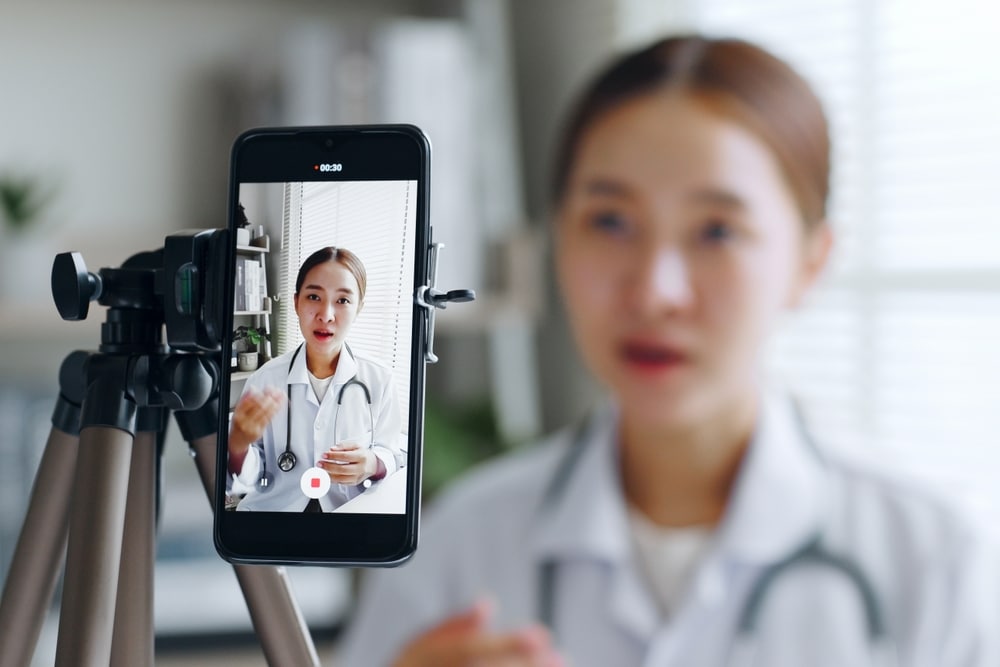Building Trust in the Digital Age: Leveraging Social Media for Healthcare PR
With the ongoing evolution and growing popularity of social media, the healthcare sector is recognising its potential as a valuable asset for public relations tactics. Want to find out how your business can leverage social media? Then keep on reading.
As social media continues to evolve and become ever more popular, the healthcare industry is realising what a powerful tool it can be regarding public relations strategies.
The digital age has transformed how information is disseminated and consumed, with social media playing a pivotal role in shaping public perception. Over 80% of internet users aged 18-49 have reported seeking health information on social media platforms.
Understanding how to effectively leverage these platforms to build trust is crucial for healthcare providers aiming to strengthen their relationships with patients and the public in general.

Understanding the Importance of Trust in Healthcare
When patients trust their healthcare providers, they are more likely to follow treatment plans, engage in preventive measures, and make informed decisions about their health.
Many patients have acknowledged that social media interactions with healthcare providers positively impact their decision-making process. So, building and maintaining trust in the digital realm is just as important as it is in traditional healthcare settings.
The Rise of Social Media in Healthcare PR
The advent of social media has reshaped the landscape of public relations within the healthcare sector. Today, the adoption of social media for professional purposes among healthcare professionals has grown to 91%, with 65% of them utilising these platforms for patient education. This illustrates the value placed on digital platforms as tools for communication and education. Social media provides an unprecedented opportunity for healthcare providers to reach broad audiences, share valuable information, and directly engage with the public.
Creating Authentic and Transparent Content
In an era where we are bombarded with information, authenticity and transparency are crucial for healthcare providers looking to build trust through social media. Many individuals turn to social media to share their personal health experiences, with 72% of people having reported doing so to seek support from their network. For healthcare providers, crafting authentic content that resonates with patients can significantly enhance their credibility and be the foundation of a trusting relationship.
Sharing real patient stories, providing behind-the-scenes looks at medical practices, and being upfront about medical procedures and their outcomes are some ways to achieve this.
Engaging with Patients and the Public
By actively joining conversations and responding to patient inquiries on social media, healthcare professionals can exhibit their dedication to patient care. Currently, more than 60% of people use social media to search for health information, which contributes to increased patient engagement and empowerment.
Social media allows healthcare providers to share timely and relevant health information while also providing a platform to listen to and address patient concerns. Healthcare providers can use these platforms to host live Q&A sessions, webinars, and interactive discussions, which not only educate but also humanise their practice.
By offering personalised responses and acknowledging patient feedback, providers can build stronger relationships with their audience. This two-way communication channel can be a very useful tool for demonstrating empathy and understanding, making patients feel valued and heard. This kind of engagement can significantly enhance the perception of healthcare providers, making them more approachable and trustworthy in the eyes of the public.
Addressing Misinformation and Building Credibility
But social media also poses challenges. Healthcare providers have to be constantly vigilant with regard to the spread of misinformation.
By using their expertise, they can proactively address misconceptions and provide accurate content. This correcting of false narratives not only builds trust but also reinforces the organisation’s role as a leader in health education. Providing clear and concise information supported by scientific evidence can help dispel myths, clarify misunderstandings, and help promote the integrity of your brand.
Regularly posting educational content, such as infographics, videos, and articles, ensures that accurate information is readily accessible to the public and that you are a solid source of reliable information. Engaging transparently and responsively with patient queries can further cement credibility, demonstrating a commitment to truthful and reliable communication.
Measuring Success and Adjusting Strategies
To use social media effectively for healthcare PR, it’s vital to measure the impact of your posting. A good place to start is by gathering key engagement metrics such as likes, shares, comments, and overall reach to gauge audience interaction with your content. Analysing these metrics will help identify which types of posts resonate most with your audience, allowing you to tailor future content to their preferences.
Another good way of tailoring your content is by encouraging feedback. As well as gaining useful information directly from users, this also fosters a sense of community and shows that you value patient input.
Regular surveys can also be an effective way to gather feedback on your social media presence and identify areas for improvement. It’s important to review your social media strategy regularly and compare your goals against actual performance. By staying adaptable and responsive to feedback, healthcare providers can better meet the needs of their digital audience, strengthening trust and credibility.
Want to chat with us more about PR in the healthcare sector? Email [email protected]
Read all about it...
LATEST NEWS

5 Proven Ways to Increase Audience Engagement Through Communications

How to Utilise News Hooks and Calendar Dates for PR Stories


